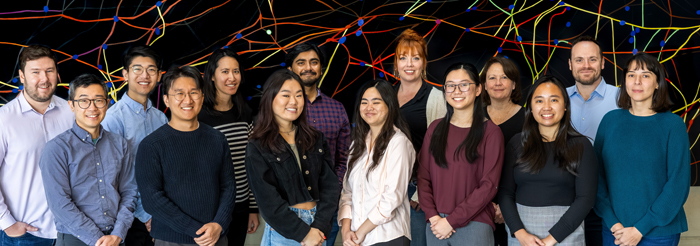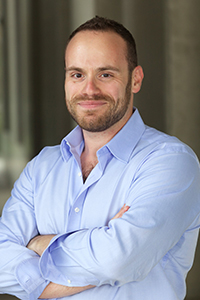Robert Signer Recognized for Pioneering Research in Hematopoietic Stem Cells
The 2024 Janet Rowley Award recognizes early career scientists who have made outstanding scientific contributions

The Signer Laboratory team
Robert Signer, Ph.D., associate professor in the Division of Regenerative Medicine at University of California San Diego School of Medicine and deputy director of the Sanford Stem Cell Discovery Center, has been named the 2024 Janet Rowley Award recipient from the International Society of Experimental Hematology (ISEH).
ISEH was established in 1950 as a place for scientists who focus on basic/preclinical hematology research to present and discuss their work.

“ISEH, in my opinion is quite a unique society,” said Signer. “It is a remarkably collaborative organization that fosters a community of researchers focused on the highest quality of science. Receiving this prestigious award is a huge honor because I have so much respect for ISEH and the mission it upholds. While awards like this are given to individuals, I see this as a recognition of everyone past and present, who has been part of our lab team. Together, we’ve cultivated a thriving lab environment populated by smart, innovative and dedicated scientists. To me, this award is a recognition of our team and their accomplishments as we have worked together to pioneer the study of protein homeostasis in hematopoietic (blood-forming) stem cells.”
As a postdoctoral researcher at University of Texas Southwestern Medical Center, Signer first became interested in protein homeostasis while working in the Morrison Laboratory, led by Sean Morrison, Ph.D., founding director of Children’s Medical Center Research Institute at UT Southwestern.
“Rob is a creative and ambitious scientist who has a knack for taking new approaches and seeing unexpected things in the data that reveal new biology,” said Morrison. “His discoveries related to protein synthesis regulation in stem cells are changing the way we think about protein homeostasis in stem cells.”
That focus on hematopoietic stem cell biology centers on understanding how blood-forming stem cells maintain their fitness and longevity to support the regeneration of blood and immune cells throughout life.
“A major goal of our research is to prevent and reverse changes in blood-forming stem cells that occur during aging to prevent blood disorders, boost immunity in older people and lower the incidence of cancer,” said Signer. “Ultimately, I hope that this research will extend human health span and longevity.”
Signer will receive the award at the ISEH’s 53rd Annual Scientific Meeting to be held in Chicago this summer.
— Joyce Pritchett
Communications Specialist, UC San Diego School of Medicine
